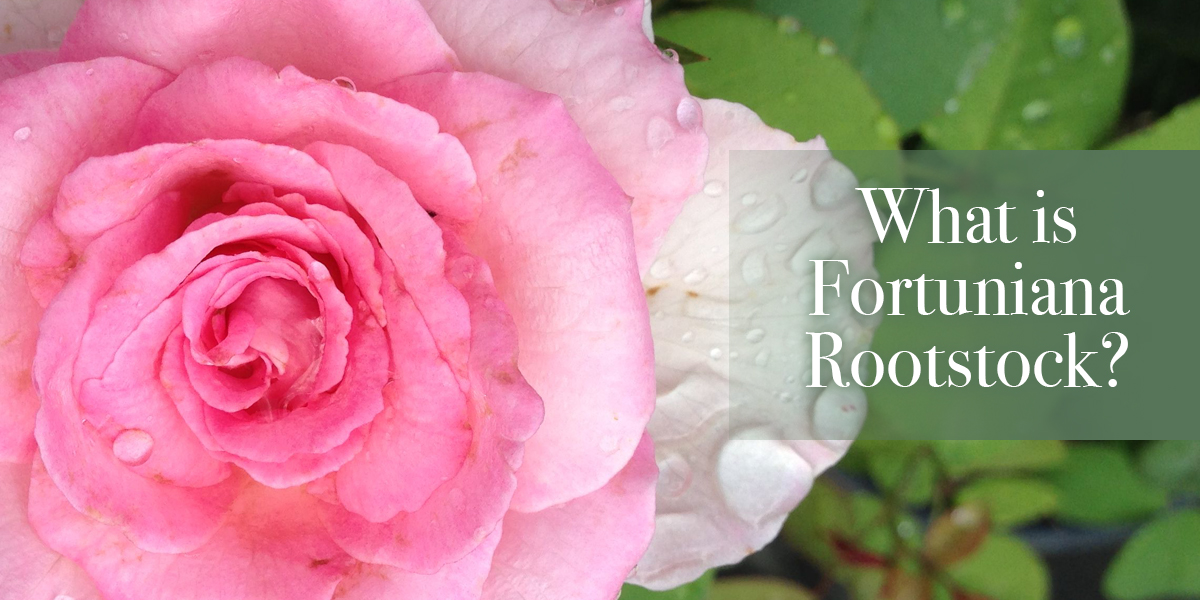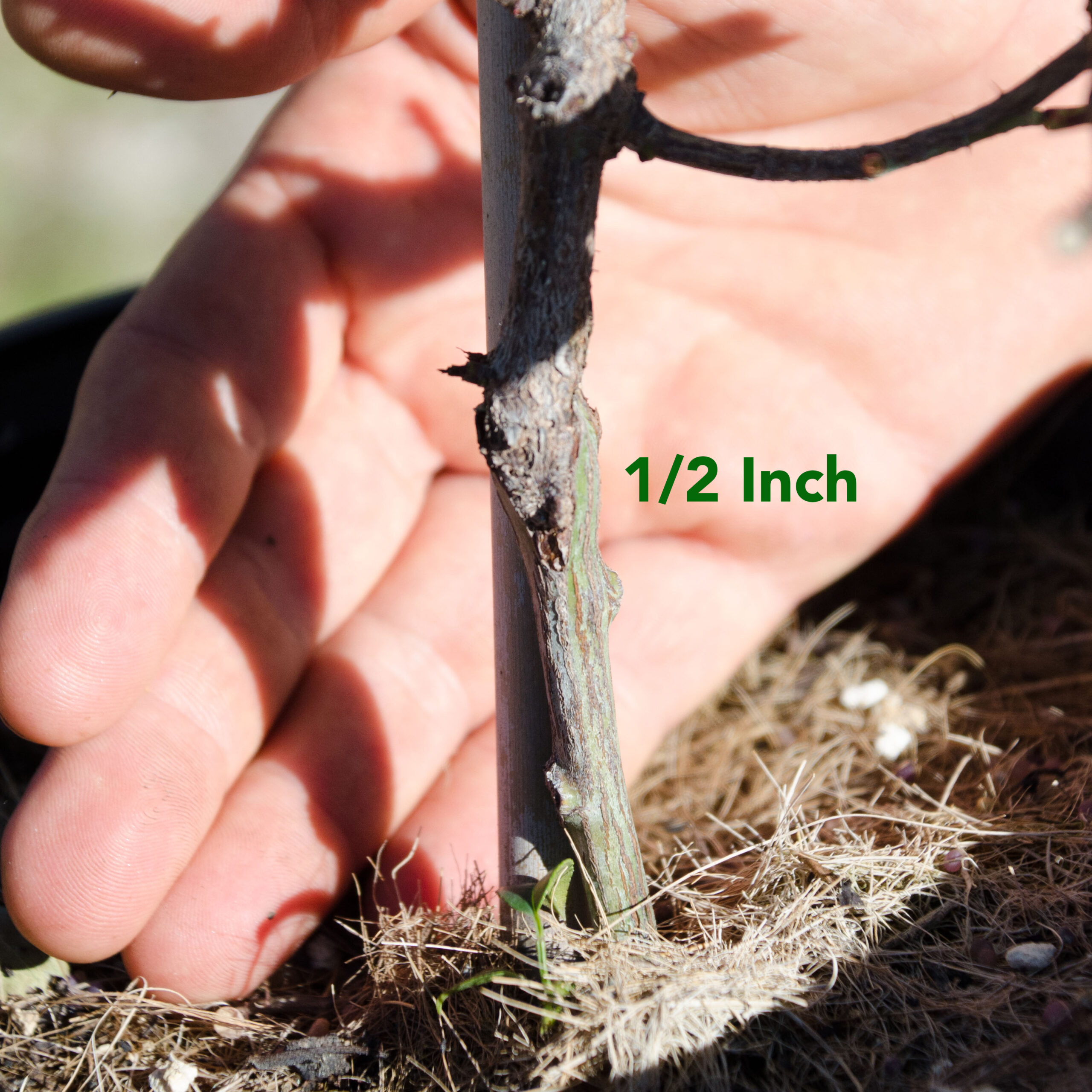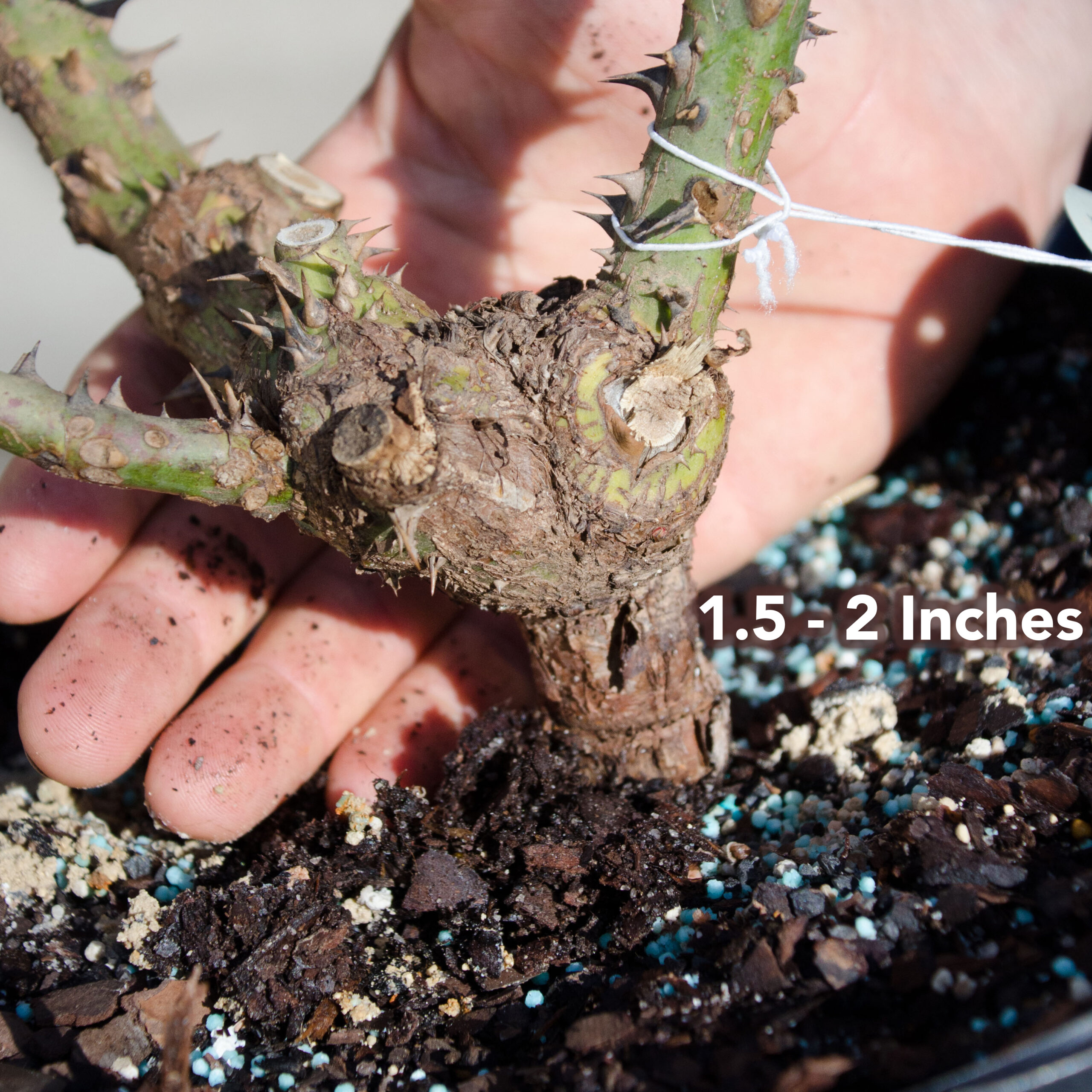
Fortuniana Rootstock Roses are Great…but What Does That Mean?
Some plants are grown with special roots that help them survive in tough environments. These special roots are called “rootstock”. Growers are able to take the roots of one plant, the top from another plant, and fuse them together to create a new “super-plant” that is stronger or prettier than it would have been if grown on its own ordinary roots. Stone fruits, citrus, and roses are all commonly grown on special rootstock to help them be the best they can be.
Fortuniana is a particular type of rootstock used on roses, particularly in the south. It has many great attributes that will help your roses survive, and even thrive, in our hot humid climate. Many southern rosarians swear by Fortuniana rootstock, and we’re true believers too.
Fortuniana Attributes
- Vigorous root system allows gardeners to grow roses even in sandy soils
- Resistant to nematodes
- Able to thrive for decades, living up to 40 years or more
- Slow growth when young, but very fast growth as they mature
- Needs to be staked for the first few years until maturity
- Best of all, Fortuniana helps roses produce extra large flowers as the plants mature
The other common rose rootstock is called “Dr. Huey”. Tallahassee Nurseries has had a long tradition with roses grown on Dr. Huey. These two rootstock options have some real differences, with pros and cons on both sides. Take a look at some at our comparison to see which one is best suited to your gardening style and needs.
It’s important to remember that the differences discussed above will only be apparent if the plants receive proper care. Neither rootstock is magic, and plants on either one will require the continued input of a gardener’s attention. While rootstock concerns are of secondary importance to proper planting and maintenance, the differences between Dr. Huey and Fortuniana are real and should be considered when starting a rose garden.
*This article was written by Jonathan Burns (Tallahassee Nurseries Outdoor Manager, FNGLA Florida Certified Horticulture Professional) using years of personal observations growing in the Tallahassee area.



